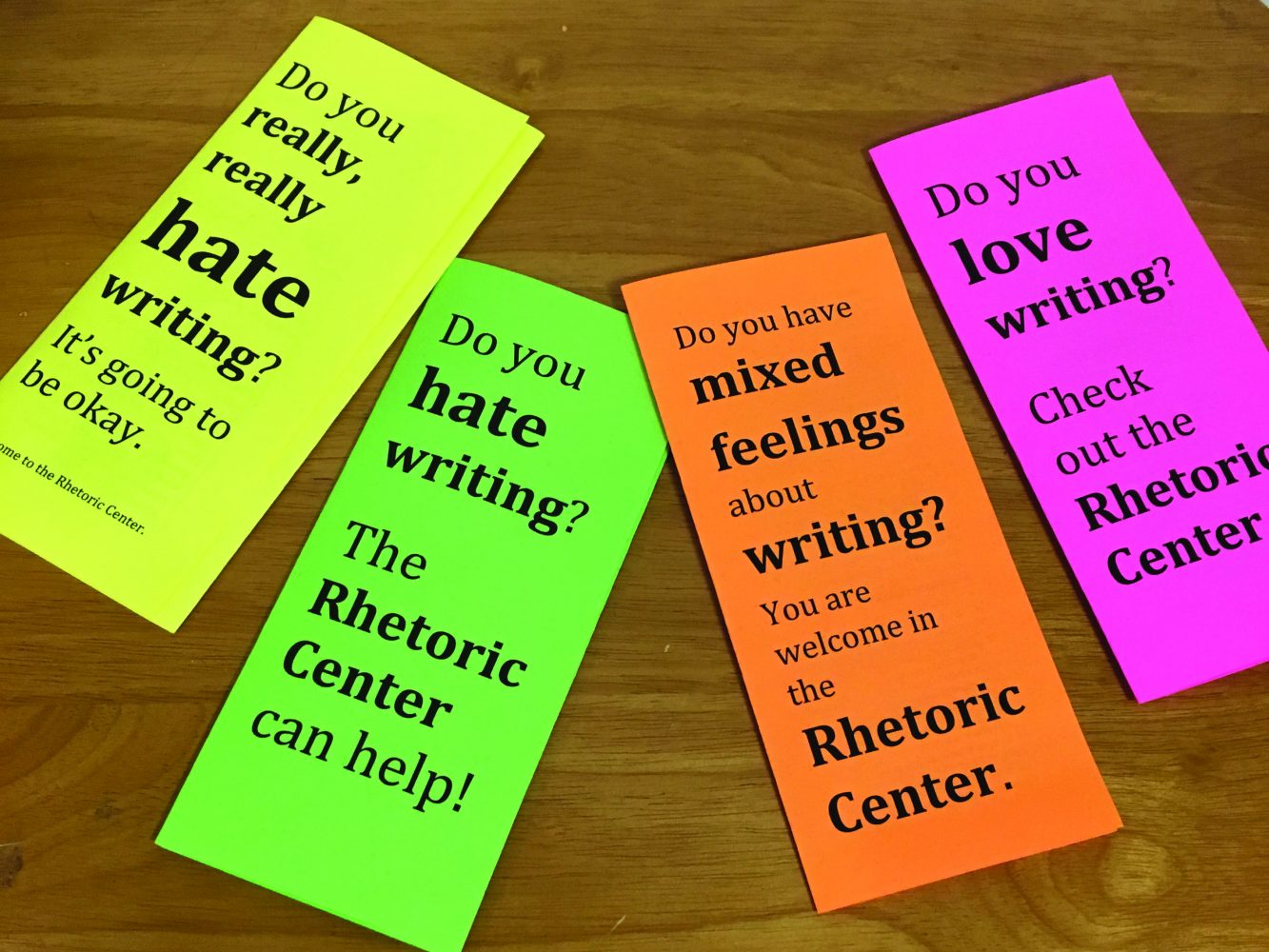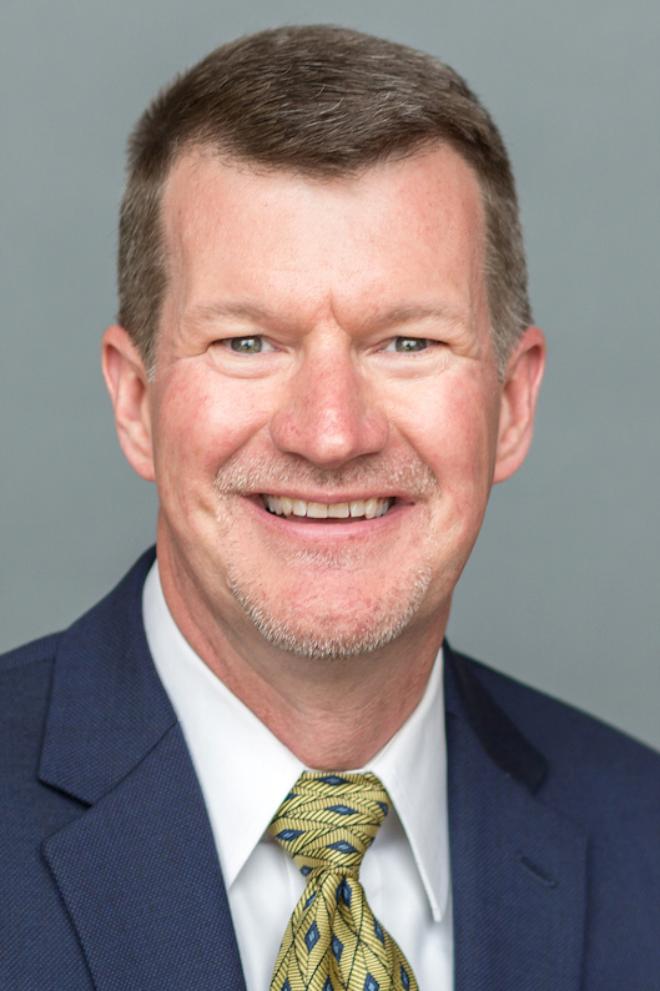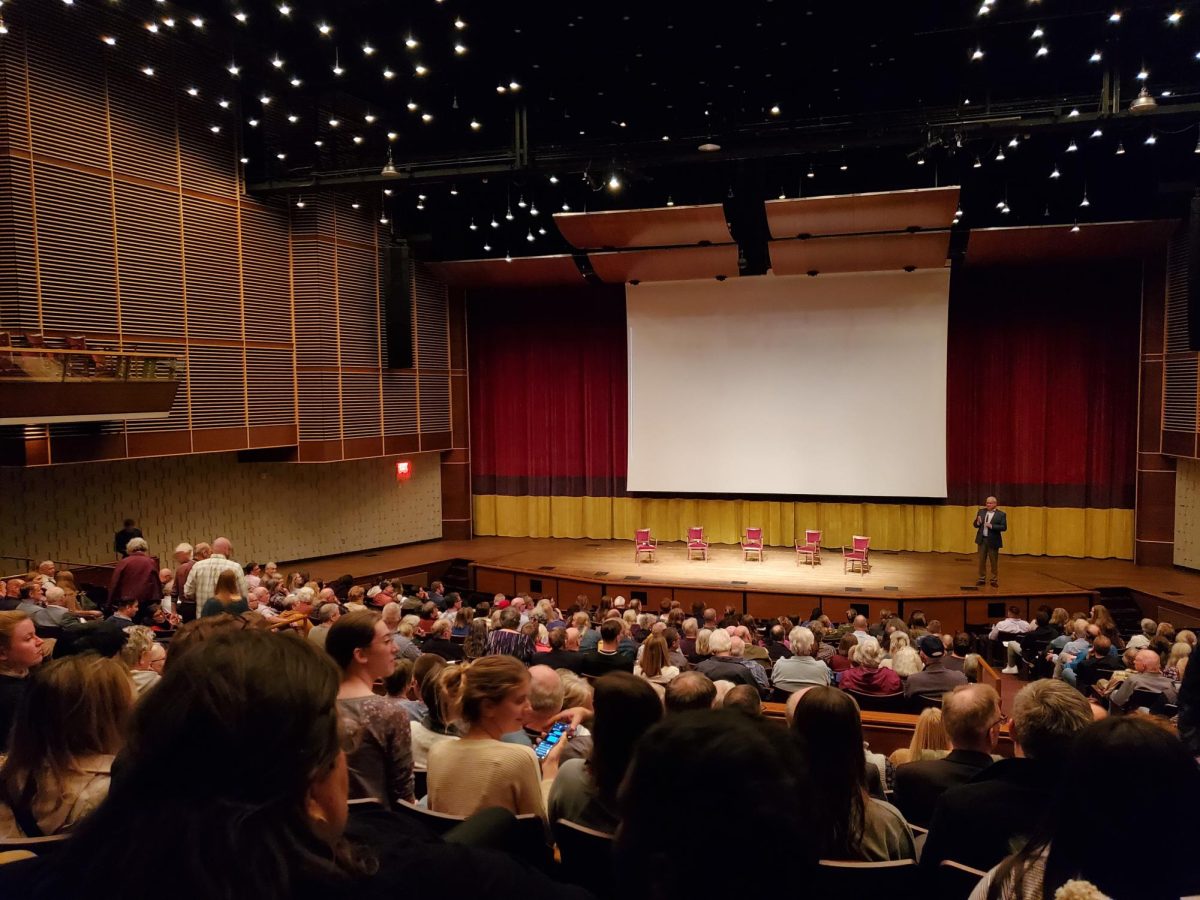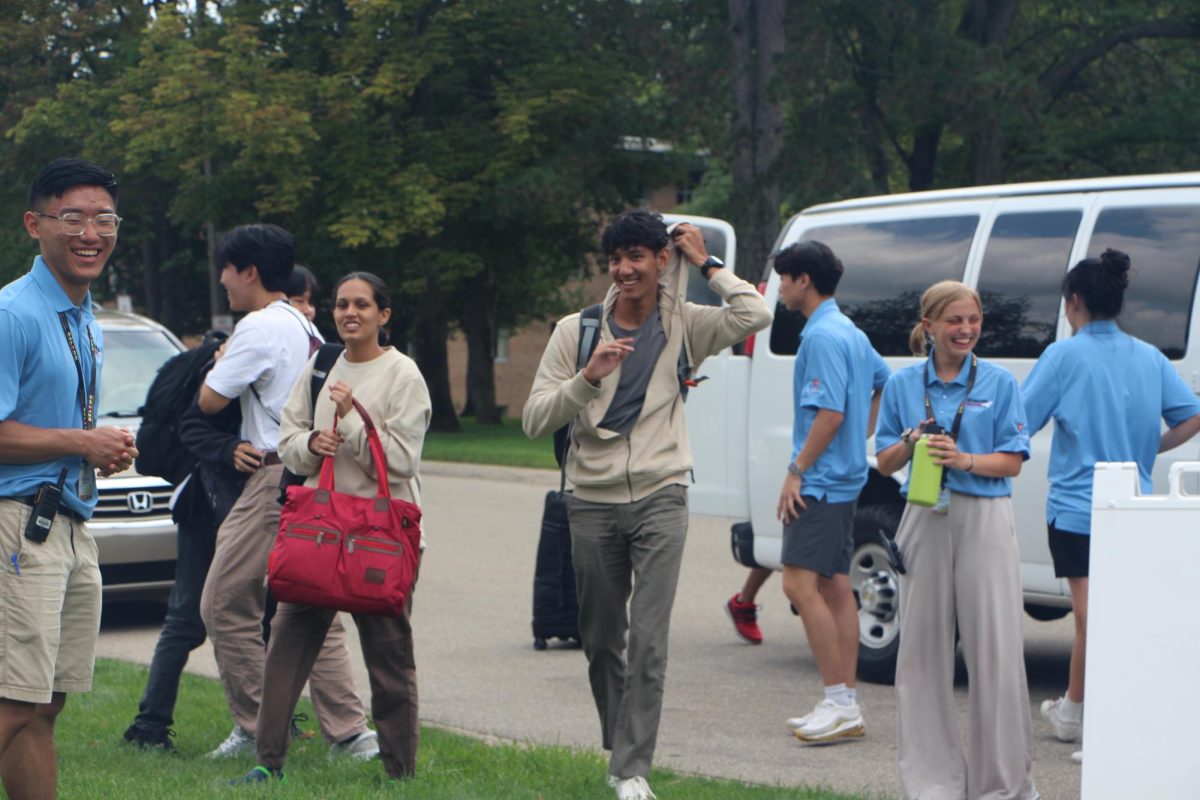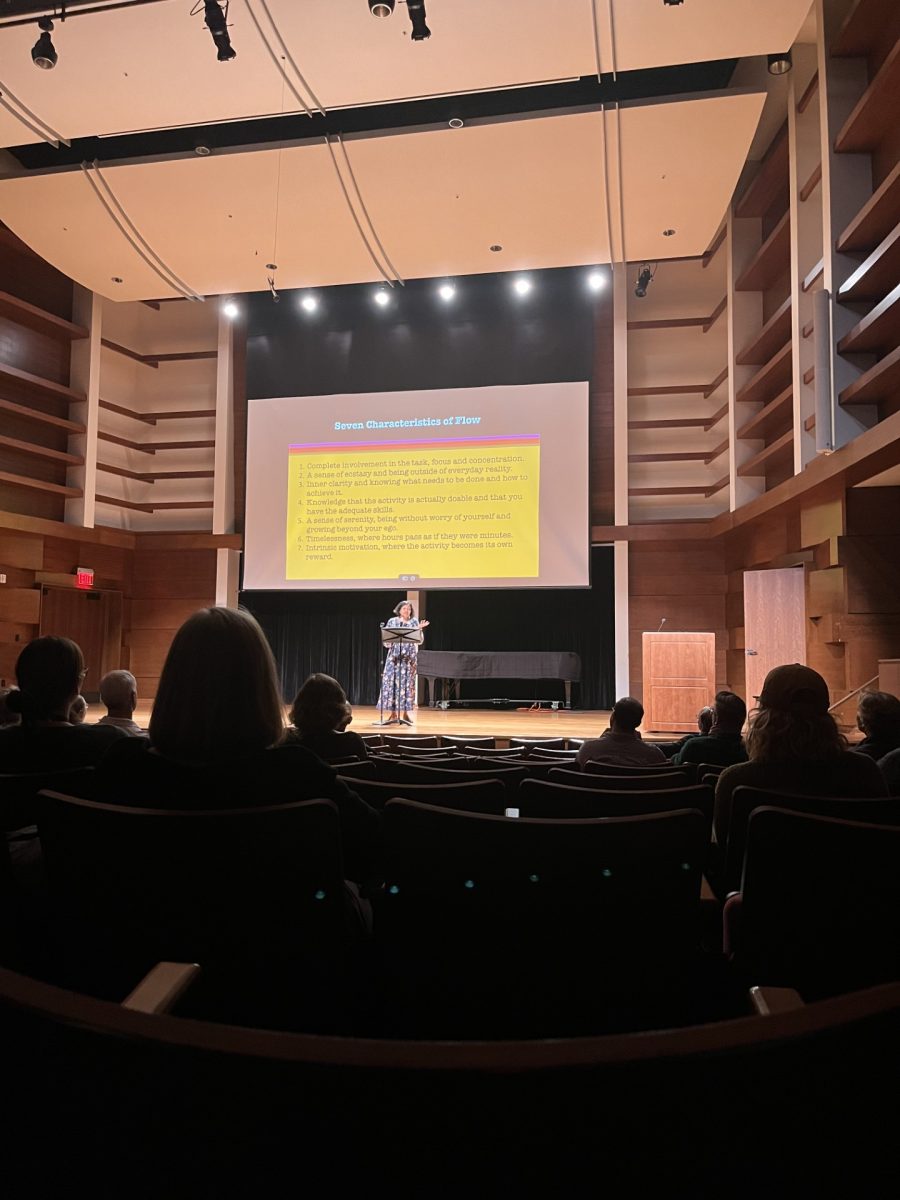Every student who’s graduated high school has written papers of various sorts. In college, these papers come more abundantly and with added challenges. There are those who have never had much of an issue with writing, and there are those who struggle a bit more with writing assignments. In the case of the latter, it would be nice if there were a place readily available that could help them with their writing strategies. Even for those who have not had much difficulty with writing, it is always useful to get a second opinion on a paper. What kind of place might there be to provide such services to students?
Any student who has taken English 101 has heard of the Rhetoric Center. You know that there is a place that can help you with your writing, and your 101 prof has probably encouraged you to go there for at least one paper. You may have even seen the brightly colored pamphlets for the RC. These have the large bold writing that either ask a question similar to “Do you hate writing?” or “Do you love writing?” Perhaps you have even used this center. But how much do we even know about this resource on campus that seems to have always been there?
With the help of Professor Karen Saupe, current director of the RC, and Dean Ward, past director, we know a little more of the background information to that office in the library that always has some sort of advertisements on the windows and some legos near the doorway.
According to Ward, the Rhetoric Center has been around since either the late 70s or early 80s. It began as something that was exclusively for English 101 students, focused on editing their papers. In the late 80s, a campus-wide writing department was made, known as a writing-across-the-curriculum program (WAC). It has since evolved into the current Rhetoric Across the Curriculum (RAC). The RC then took a turn to begin to provide support for students across the curriculum in 1990. That was when Ward took over directing the center. Ward comments on the growth of the center during his fifteen years with the program: “it grew from four tutors (now ‘consultants,’ a better term for what they do) to twelve to fourteen students working at the RC each year. The RC slowly grew to work with more and more students and faculty across the disciplines. And toward the end of my time with the RC, we began working with students on oral and visual rhetoric in addition to writing.”
The location of the RC has moved around the campus and been placed in various nooks on campus. The first physical sign of the move from a service for English 101 students to an all-college service was the transition out of the English department. The RC shifted to a space in Hiemenga Hall, followed by a move into Commons and finally into Hekman Library, where it can be found today. The sign that announces the move to the library is still posted in the Commons Annex, despite the fact that it has been located in the library for ten years now.
Ward also notes that another important change for the RC “was in the make-up of the staff. Because the RC was serving students from across the disciplines, we hired a staff from across the disciplines, typically trying to find great English 101 students and hire them to work in the RC from their sophomore through senior years.” Having students on staff for such a stretch of time was part of an effort to gain expertise and professionalism. For that purpose, the RC began to make a yearly presentation at a professional conference. Calvin was among the first colleges in the Midwest to have undergraduates from a writing center present research at professional conferences.
Saupe has been the main director of the RC for ten years, since its move into the library. In that time she has seen the RC grow a little more each year. In her early days, with the move to the library still fresh, there was a lot of experimentation with workshops and getting help to many students. The move to the library made the RC much more accessible to students. This led to more business for them, and a little more publicity.
The program is strong today. There have been many changes and moves over the years that the center has been active, but it is now a stable entity that is able to offer help to any student that requires it. And by any student, they mean any student. Any major, any year, any stage of the writing process. Though they do advise that you not to wait until the day the paper is due to come in and ask for help.
To provide this help, the best possible staff has been assembled for the RC. They are not there to be a fix-it shop for your paper, but are meant to consult you on how you can improve your writing techniques. They are there to help you to think through your ideas and make what you need to get across in your paper more plain. A common misconception about the RC is that they are a proofreading group. They are not editing the paper in the sense that you hand it to them, and they give it back with marks showing what you need to fix, but rather, they work with you over the paper to improve the message. They give students the advantage of having a trained, attentive listener go over the paper with you. They will tell you what the paper is lacking in the way of communication and structure. Saupe comments, “even for good writers, a set of attentive ears is really useful.”
To get a job at the RC, you need to have shown your writing skills in your English 101 class, as students are recommended by those professors. They then go through training and weekly staff meetings that also contain training and education about strategies, composition process, theory of editing and organization. They are even given reading assignments and projects to work on sometimes. Some of the consultants will attend professional conferences, and a symposium is held by the RC as a kind of work retreat. The training of these consultants are taken very seriously. To get a job at the RC is very competitive, and students across the disciplines are sought after, so much so that the English majors that seek a job there are actually more at a disadvantage.
While the RC is mainly associated with writing, it is a Rhetoric Center, which means that the center also helps with visual and verbal rhetoric projects, and the structure and formation of those as well. All in all, the RC has become a staple for Calvin. It is something that will be there for the student body whenever they have need of it.
Saupe extends the following invitation: “I would encourage strong writers to come and see what we are all about. I invite anybody, staff, faculty, students, who have questions about what we do or suggestions on how we can do it better, please feel free to contact me.”




